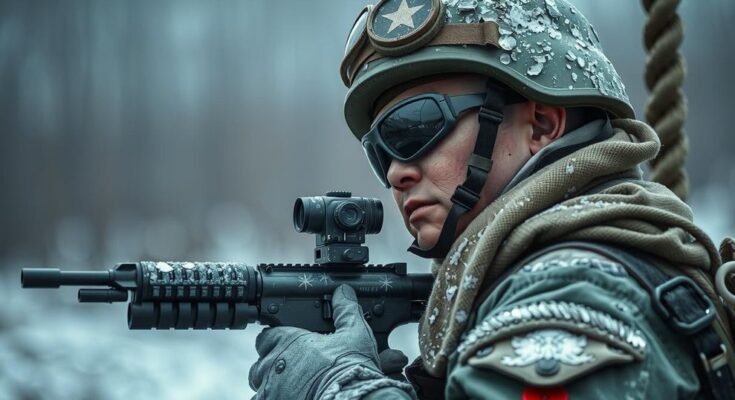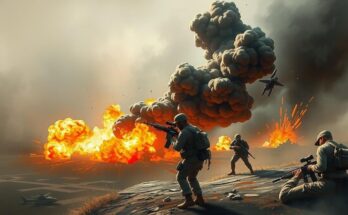South Korea’s intelligence confirmed the capture of a wounded North Korean soldier in Russia’s Kursk region, following Ukrainian reports of this event. An estimated 12,000 North Korean troops are in Russia supporting military efforts against Ukraine, with significant casualties reported. This marks a pivotal moment, as it may facilitate future defections of North Korean personnel in conflict zones.
South Korea’s National Intelligence Service (NIS) has officially confirmed the capture of a wounded North Korean soldier in Russia’s Kursk region. This confirmation follows reports from Ukrainian media showcasing the soldier in custody, which is believed to be the first instance of a North Korean prisoner of war being captured by Ukraine during its ongoing conflict against Russian forces. The NIS relayed that this information was gathered through real-time intelligence-sharing with allied agencies and emphasized the need to closely monitor subsequent developments regarding this situation.
Reports indicate that approximately 12,000 North Korean soldiers have been deployed in Russia to augment its military operations against Ukraine, with estimates suggesting that upwards of 3,000 have faced casualties. The NIS cited that at least 1,100 North Korean personnel have been killed or injured. As the situation unfolds, the NIS has articulated the necessity of having agents able to communicate with North Korean soldiers, particularly in cases of defection or surrender, affirming that South Korea is obliged to accept such requests in accordance with both international and domestic law.
The context surrounding this event encompasses ongoing allegations of North Korean military participation in the conflict in Ukraine. Neither President Vladimir Putin of Russia nor North Korean leader Kim Jong Un has publicly acknowledged the deployment of North Korean troops. However, various pieces of evidence, including a soldier’s notebook outlining tactics and other materials found on fallen North Korean soldiers, point to their involvement in the ongoing hostilities in Ukraine. Furthermore, there exists anecdotal evidence suggesting dissatisfaction among captured Russian troops regarding the conduct of North Korean soldiers, with comments made about their discipline.
Militarnyi, a military-focused news outlet, reported that the North Korean soldier was taken during operations in Kursk but did not provide specifics regarding his capture. Images of the captured soldier have circulated on social media platforms, raising questions about his health and the following treatment he might receive. The implications of this capture signify a potential turning point in the relationship between North Korea and its ally, Russia, as well as raise questions about North Korean soldiers’ prospects of defection to South Korea amidst the current geopolitical tensions.
The ongoing conflict between Ukraine and Russian forces has drawn in various external actors, including North Korea, which reportedly has deployed soldiers to assist Russia. The exact count remains contested, but estimates state that as many as 12,000 North Korean troops could be active in the region. Reports of casualties among these soldiers have surfaced, and a recent occurrence has brought international attention to a North Korean soldier’s capture by Ukrainian forces, marking the first such incident and raising questions about the implications for North Korean military support and individual soldier motivations. The South Korean government, through its National Intelligence Service, has emphasized the importance of being prepared for the defection of North Korean soldiers, reflecting the complex political and military dynamics in play.
The confirmation of the capture of a wounded North Korean soldier by South Korean intelligence highlights the complex and evolving nature of international military alignments amid the conflict in Ukraine. Not only does this instance underscore the potential for defection among North Korean soldiers serving abroad, but it also raises critical discussions regarding the strategic importance of such soldiers to North Korea and Russia’s military objectives. As the situation continues to develop, it is evident that geopolitical intricacies will play a significant role in shaping future engagements and outcomes.
Original Source: www.rfa.org




